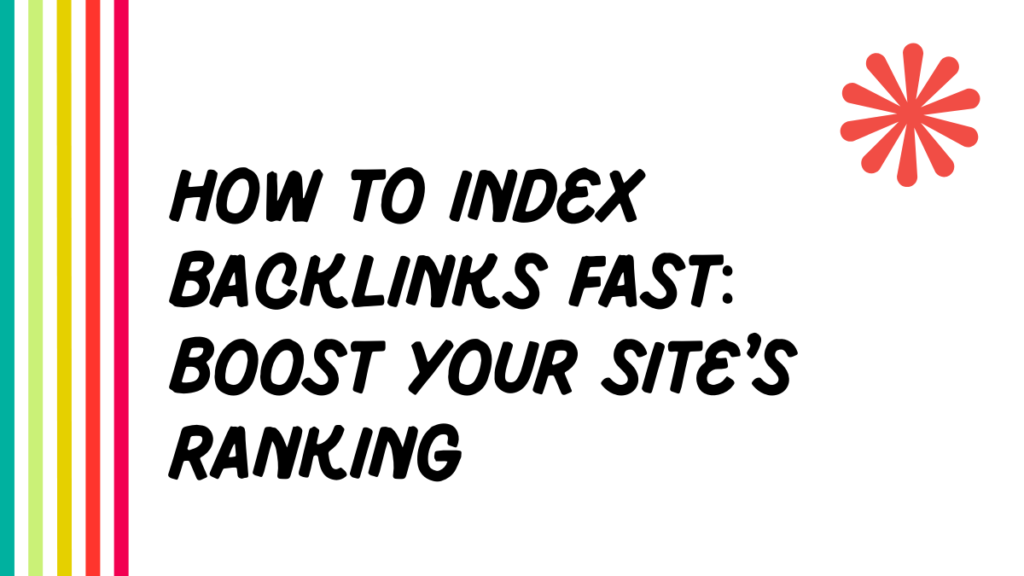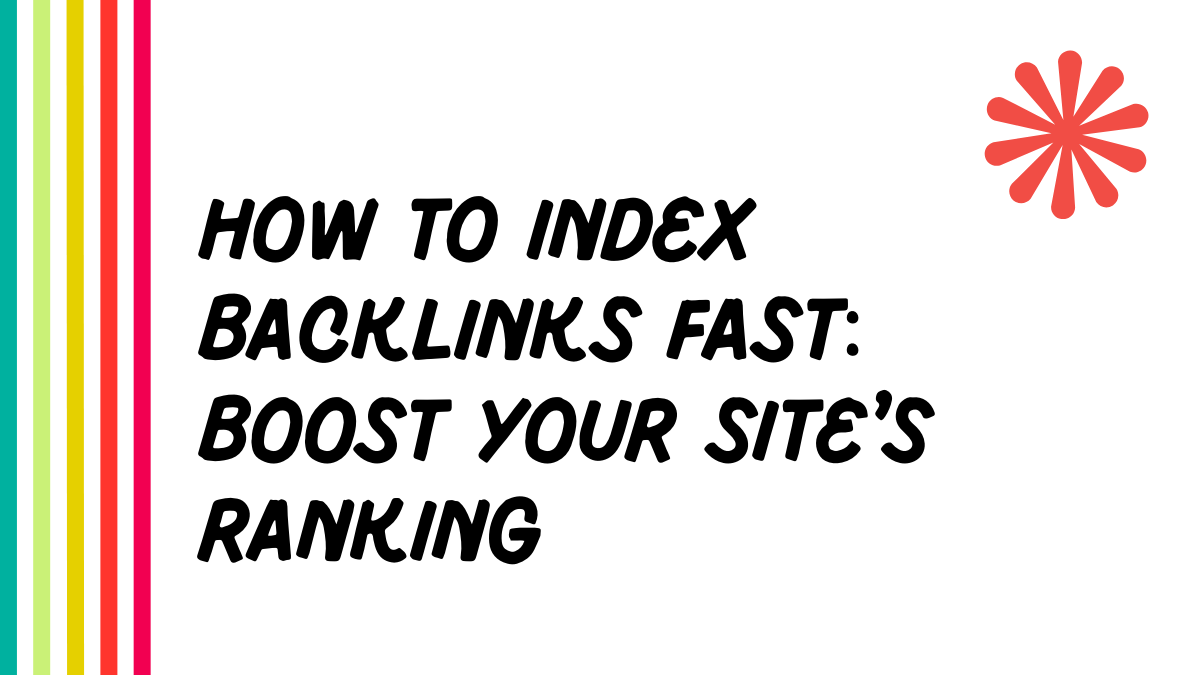Picture this: You’ve spent hours (or maybe days!) crafting high-quality content, getting those sweet backlinks from reputable websites… but your search engine rankings aren’t moving an inch. What’s the deal? It might be that those awesome backlinks aren’t doing their job because they haven’t been indexed yet. So, in this post, let’s unlock the mystery of backlink indexing and discover how to make those links work their magic for your website.
What Exactly is Backlink Indexing?
In the simplest terms, think of backlink indexing as Google (and other search engines) adding your backlinks to its massive database. It’s like a giant library where Google stores all the information about who’s linking to whom on the web. Until a backlink is indexed, Google might not even know about it, meaning it won’t factor into your search rankings.

Why Does Backlink Indexing Matter?
Imagine backlinks as votes of confidence for your website. The more high-quality backlinks pointing to your pages, the more trustworthy and authoritative your site appears to search engines. But, if those backlinks are just floating around unindexed, they’re not casting a vote for you! Therefore, getting your backlinks indexed is crucial for your SEO success.
How to Check if Your Backlinks Are Indexed
The quickest way to check is with a simple Google search:
- Copy the exact URL of the page containing your backlink.
- Search for it in Google (put it in “quotation marks” to get an exact match).
- If the page shows up, it means Google has indexed it – and likely your backlink, too.
How to Get Backlinks Indexed Faster
Getting backlinks indexed naturally takes time, but don’t worry, there are ways to speed things up:
- High-Quality Content: Websites with amazing, valuable content tend to get crawled more often by search engines. This gives Google more chances to discover your new backlinks.
- Internal Linking: Build a strong network of internal links within your own website. This helps search engine crawlers find your pages (and the backlinks on them) more easily.
- Social Media Power: Share your content on social media platforms. The more buzz you make, the better your chances of attracting natural links and faster indexing.
- Pinging Services: These tools notify search engines about updates to your website. A popular free option is https://www.google.com/webmasters/tools/submit-url.
- Backlink Indexing Tools: Many SEO tools include features specifically for expediting backlink indexing. These can be great time-savers.
- Google Search Console: Manually request indexing through Google Search Console. It’s like putting a priority tag on your content.
Important Note: Patience is still key! Even with proactive approaches, indexing can take a few days or even weeks.
Things That Can Hinder Indexing
- Low-Quality Websites: If your backlink comes from a site with poor authority or spammy content, it might not be a priority for indexation.
- Technical Issues: Websites with broken links, crawl errors, or poor structure are harder for search engines to process, hindering backlink discovery.
Indexing your backlinks is essential and often overlooked. I’ve seen websites get a noticeable SEO boost just by focusing on this one aspect!
FAQs
- How long does backlink indexing take? It varies, from a few days to several weeks.
- Can I index all my backlinks at once? Yes, indexing services allow bulk indexing.
- How important is backlink quality? Very important! Prioritize high authority links.
- Do social media links get indexed? Not always reliably.
- Does indexing guarantee higher rankings? Indexing is one piece of the SEO puzzle.
Additional Tips for Faster Indexing
- XML Sitemaps: An XML sitemap is like a roadmap for search engines, making it easier for them to discover all the pages on your website – including those with fresh backlinks. Make sure to create one and submit it to Google Search Console.
- Web 2.0 Submissions: Utilize high-quality Web 2.0 platforms (like Medium, Blogger, etc.) to create articles or posts linking back to your website. This gives you an extra way to spread your links and encourage indexation.
- Build Backlinks Strategically: Instead of getting backlinks from anywhere and everywhere, focus on quality websites relevant to your niche. Links from topically related sites look natural to search engines and are more likely to be indexed.
Common Backlink Indexing Myths
- Myth 1: Buying Backlinks Guarantees Instant Indexing. Bought backlinks from low-quality sites often raise red flags for search engines, and may not get indexed at all, or worse, penalize your site.
- Myth 2: Indexation Services Speed Up Everything. Indexing services can help, but they’re not a magic bullet. Google still takes its time, especially with new websites.
- Myth 3: Indexed = Ranking Boost. Indexing is a prerequisite to impact rankings, but high-quality content, website structure, and overall SEO strategy are equally important.
Summary
Getting your backlinks indexed is an important step in gaining the full power of those links to improve your search engine rankings. Implementing strategies that combine quality content creation with proactive indexing efforts will lead to the SEO growth you desire.
Are you actively working on indexing your backlinks? Share your best tips and experiences with us in the comments section below!



